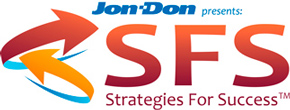Last week I introduced the principles of motivation that Dan Pink has written about in his book titled Drive: The Surprising Truth about What Motivates Us. The difference in this book and others of the same genre is this one is built on science. Unfortunately as Pink states there is often a mismatch between what science knows and what business does. (Take a look at last week’s post for more info on this subject and how it applies to your employees and customers.)

We concluded that ultimately what determines which type of motivation moves you, depends on three qualities: autonomy, mastery, and purpose. People normally tend to be either Type I (intrinsically motivated) or Type X (externally motivated). Type I behavior is self-directed. It is devoted to becoming better and better at something that matters. And it connects that quest for excellence to a larger purpose.
The first element is autonomy: meaning you have control over your job. This can be simplified into the 4 T’s: task, time, technique, and team. Our industry is made up of entrepreneurs. By definition you have complete autonomy. Some days that may be bad, as you have no one forcing you to go out on your route sales. A Type X person should never become an entrepreneur.
Now how about your employees? What can you do in the 4 T’s to make their job more autonomous? This may be difficult but not impossible. If you look at the company Zappos you can see an excellent example. Their company is based upon a call center which normally is a dreaded dead-end job. But they gave their employees complete autonomy and it quickly became such a success story that they were bought out by Amazon for just under a billion dollars. Jet Blue also has a very successful call center.
Both companies have very different hiring procedures. At Zappos the CEO brings potential hires for a week of training without hiring them. If they fit into the company he offers them a job if not he offers them 2000.00 for trying. At Jet Blue 70-80% of the people working as customer reps have college degrees but for one reason or another have to stay home. They answer calls from home and Jet Blue has extremely high customer service rankings. This has become a model for other large call centers throughout the country and allowed many companies to bring back jobs from the Middle East.
The second element is Mastery: meaning that you continue to perform your job better and better every day. Look back at autonomy for just a moment. The antonym of autonomy is “control”. Control is what management often feels leads to compliance. This was the belief behind Henry Ford’s automated line. On the other hand autonomy leads to “engagement”. Employee engagement is defined as one who is fully involved in, and enthusiastic about, his or her work, and thus will act in a way that furthers their organization’s interests as well as their own personal interest. According to Gallup’s extensive research less than 30% of American employees are engaged in their work. Only engagement can produce mastery.
Mastery can be seen in John the restorer. Attending a certification class gave him the background knowledge but the day in day out experience allowed him to achieve mastery. This training leads to two different goals. John scored a 91 on his WRT exam and he reached his performance goal. Even more important was his learning goal, knowing how to handle any type of water loss and put the home back to its pre-loss condition.
In our industry the learning goal is more important. Many employees are not proficient test takers and when they score poorly they feel like they can’t do the job. Stressing the learning goal allows them to learn the skills on the job. Mastery is a mindset and it is not an easy achievement. While Jon-Don offers classes for restoration, carpet, fabric cleaning and even building services, generally these are skills that require years of experience. For the tech that does not do well in a classroom, achieving mastery in a field will be self motivating.
Third and final element is Purpose: meaning working for a greater cause. This doesn’t mean you have to work for a non-profit organization. I feel that in our industry we truly do serve the greater good. Providing a clean, safe, warm environment for your customer’s families can certainly be rewarding and not just in a monetary sense. For the restorers, when you hand back a freshly cleaned teddy bear to the little girl, her smile is all the reward you need. Why do you think so many wealthy people get involved in charities? Their riches may have provided them the materials they desired but nothing can duplicate the feelings they get from helping another person.
Milaly Csikzenthmihalyi, author of Flow, says “One cannot lead a life that is truly excellent without feeling that one belongs to something greater and more permanent than oneself.”

So how do you know if you or one of your techs is Type I or Type X? Well I believe you know inherently what type you are but Dan Pink has a nice online survey to help you determine which category you are in.
The book also has over 50 pages of material to help you understand motivation and how you can use this knowledge to improve your business life but also your family life.
If you are looking for a clue about where your employees are at in their “career journey”; listen to the conversation between them and other employees. When they refer to the company do they say “they” or do they say “we”? If it is the first then you have a little more work in front of you!
